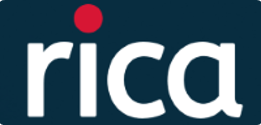Publication Ethics and Malpractice Statement
Ethics and malpractice statements of RICA are based on the guidelines established by the Comitee on Pulblication Ethics (COPE). It is expected a high degree of ethical behavior from all parties involved in the publishing process: the authors, editors and the editorial board, reviewers and the publisher.
Responsibilities/Duties of Authors:
- Originality and Plagiarism: All manuscripts must be the original work of authors and not evidence plagiarism, including self-plagiarism.
- Acknowledgement of sources: If the authors have used the work and/or words of others, the publications must be properly cited or quoted.
- Authorship of the Paper: Authorship should be limited to those who have made a significant contribution to the conception, design, execution, or interpretation of the reported study. All those who have made significant contributions should be listed as co-authors. Where there are others who have participated in certain substantive aspects of the research project, they should be properly acknowledged.
- Multiple, redundant or concurrent publication: Authors must not submit the same manuscript to more than one journal concurrently, neither 'slicing' works into smaller articles ('salami science') for the sole purpose of increasing the number of publications.
- Disclosure and Conflicts of Interest and Financial Support: Authors should disclose any conflict of interest, financial or otherwise that may influence the results or interpretation of their manuscript. They should also recognize individuals or organizations that have provided financial support for research.
- Ethical and legal aspects: Authors should only submit papers only on work that has been conducted in an ethical and responsible manner, and that complies with all relevant legislation.
- Data access and retention: Authors may be asked anytime to provide the raw data in connection with manuscripts for editorial review and should be prepared to provide public access to such data if possible.
- Corrections/retractions: When an author discovers a significant error or inaccuracy in his own published work, it is the author's obligation to promptly notify the publisher or publisher of the Journal and cooperate with the publisher to retract or correct the paper.
Responsibilities/Duties of the Editor and the Editorial Board:
- Publication Decisions: The editor-in-chief and the handling editor are responsible for deciding which of the articles submitted to the journal should be published. The decision to publish should be guided by the policies of the Editorial Board of the journal and should be based exclusively on the academic merit and the decision supported by the reviewers. Peer review helps the publisher make editorial decisions and, through editorial communications with the author, also aims to help the author improve the manuscript.
- Fair play: An editor should evaluate manuscripts for their intellectual content without regard to race, gender, sexual orientation, religious belief, personal interests, ethnic origin, citizenship, or political philosophy of the authors.
- Confidentiality: The Editor and any member of the editorial staff must not disclose any information about a submitted manuscript to anyone other than the corresponding author, reviewers, potential reviewers, other editorial advisers, and the publisher, as appropriate.
- Disclosure and conflicts of interest: Unpublished materials disclosed in a submitted manuscript must not be used in an editor’s research without the express written consent of the author. Privileged information or ideas obtained through peer review must be kept confidential and not used for any kind of advantage.
Possible plagiarism or duplicate/redundant publication will be assessed by the editorial board of RICA. In other cases, the journal may request an investigation by the institution or other appropriate bodies. Every reported act of unethical publishing behavior must be looked into, even if it is discovered years after publication.
Responsibilities/Duties of Reviewers:
- Contribution to Editorial Decisions: The reviewers must assist the editors in making editorial decisions based on the quality of the reviewed work.
- Promptness: Any selected referee who feels unqualified to review the research reported in a manuscript, has any kind of conflict of interest, or knows that its prompt review will be impossible, should notify the editors immediately and excuse himself from the review process.
- Confidentiality: Any manuscripts received for review must be treated as confidential documents. They must not be shown to or discussed with others except when explicitly authorized by the editors.
- Standards of Objectivity: Reviews should be conducted objectively. Personal criticism of the author is inappropriate and unacceptable. Referees should express their views clearly with supporting arguments.
- Acknowledgement of Sources: Reviewers should identify relevant published work that has not been cited by the authors. Any statement that observation, derivation, or argument had been previously reported should be accompanied by the relevant citation. A reviewer should also call to the editor’s attention any substantial similarity or overlap (possible plagiarism) between the manuscript under consideration and any other published paper of which they have personal knowledge.
- Disclosure and Conflict of Interest: Privileged information or ideas obtained through peer review must be kept confidential and not used for any kind of advantage. Reviewers should not consider manuscripts in which they have conflicts of interest resulting from competitive, collaborative, or other relationships or connections with any of the authors, companies, or institutions connected to the papers. In these cases, the reviewer must decline the review invitation, informing the relevant conflicts of interest.
Reference
Committee on Publication Ethics (COPE). (2011, March 7). Code of Conduct and Best-Practice Guidelines for Journal Editors. Available at: http://publicationethics.org/files/Code_of_conduct_for_journal_editors_Mar11.pdf





